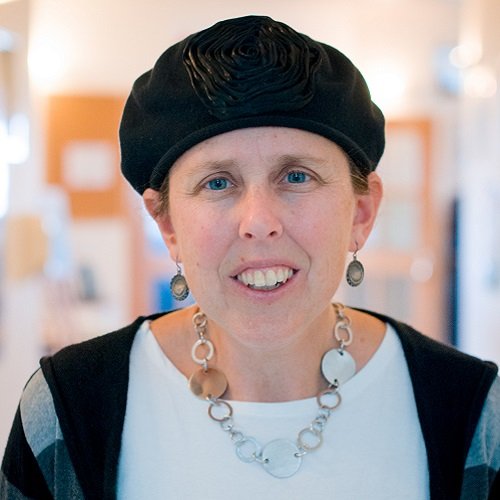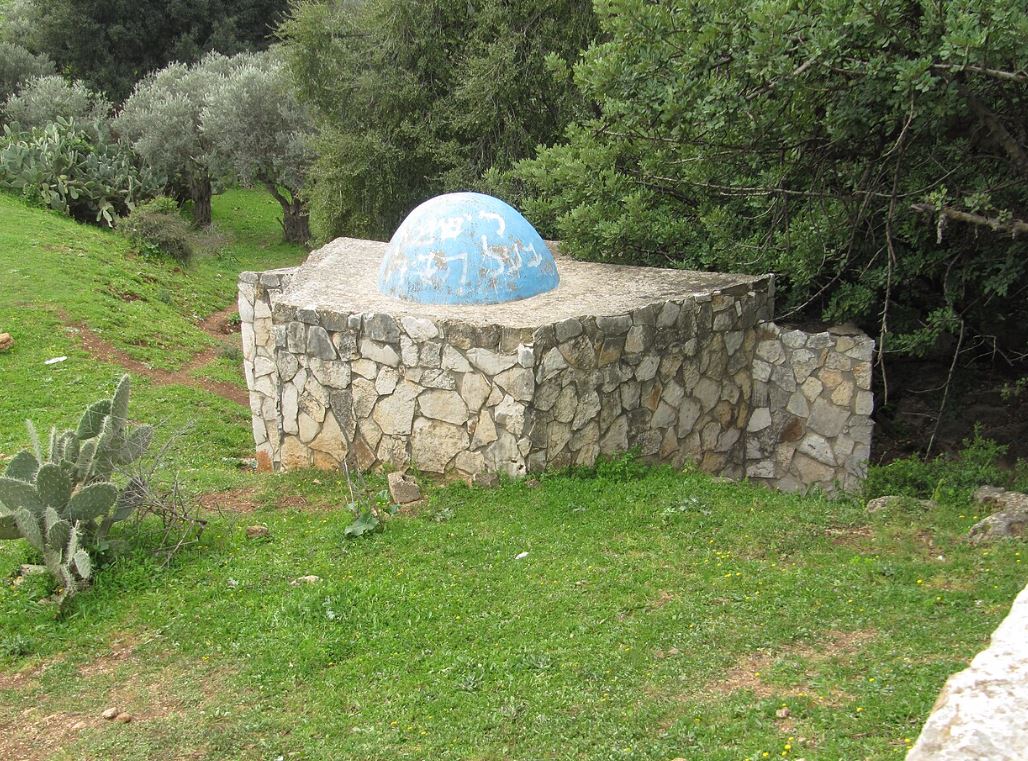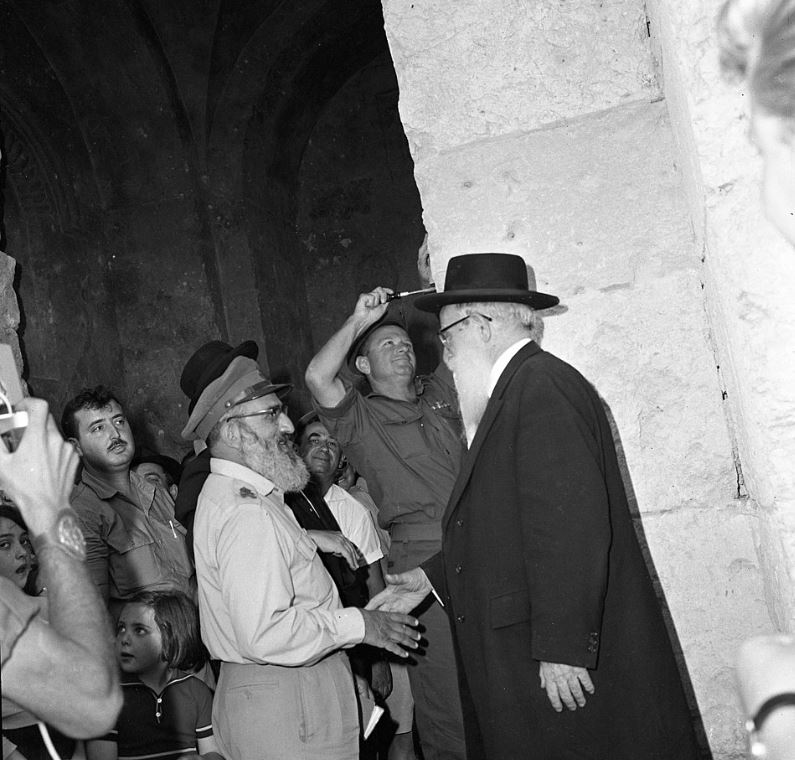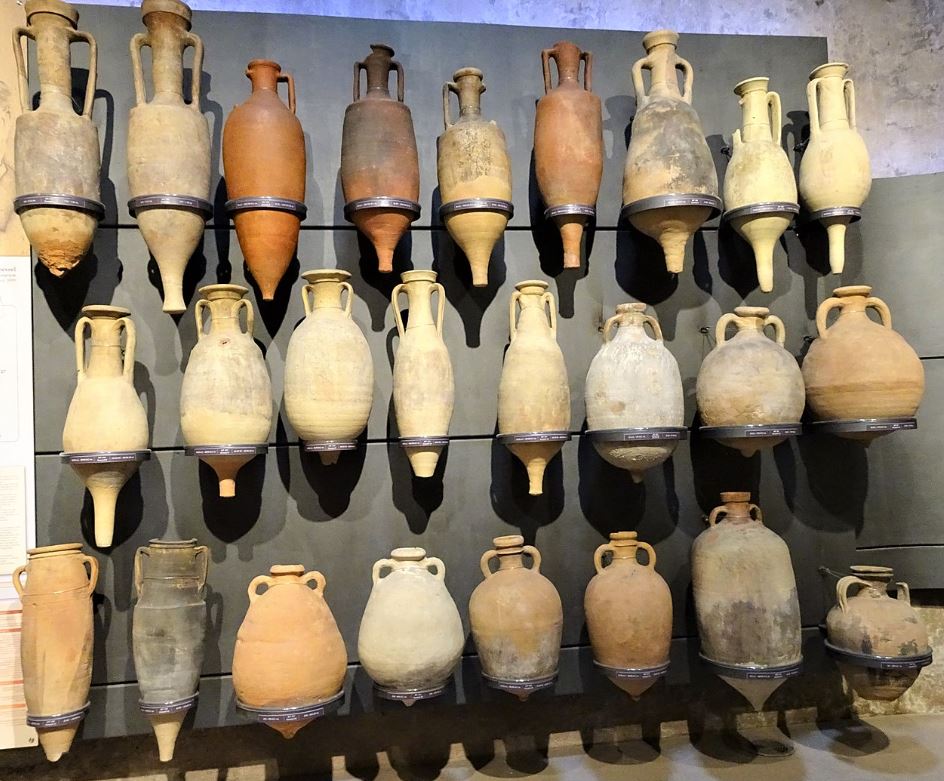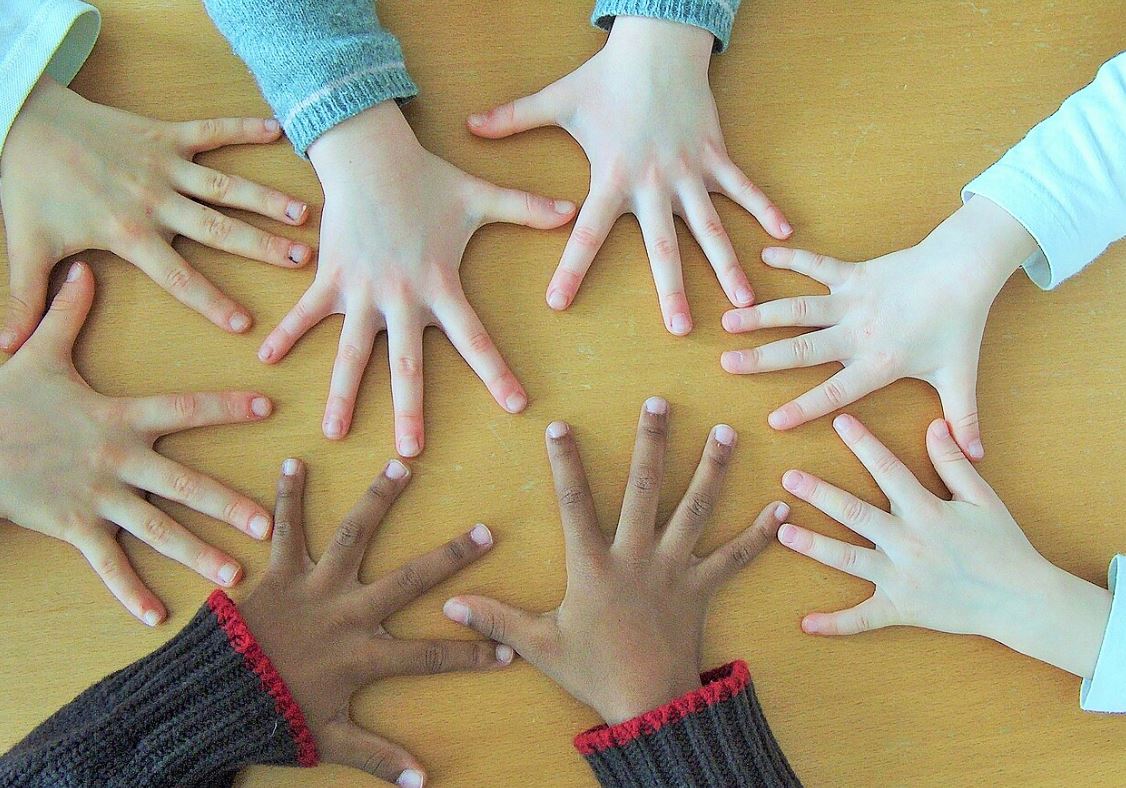What if the world was governed by a universal code of ethics and morality? Would that change the moral confusion so many have?
This week’s pages of Sanhedrin discuss such a universal code. It was given by God to all those who are not Jewish, commonly known as the sons of Noah (bnei Noach or Noachides); all the people who descended from the family that was saved during the great flood. The Gemara lists these laws:
“The Sages taught: The descendants of Noah were commanded seven mitzvot: [establishing courts of] judgment; blessing, [i.e., cursing,] the name of God; idol worship; forbidden sexual relations; bloodshed; robbery; [eating] a limb from a living [animal]” (Sanhedrin 56a)
Along with these iconic seven laws, some rabbis add others: not consuming blood, not creating forbidden mixtures (kilayim), any forms of sorcery, and forbidding castration (Sanhedrin 56a and Bereshit Rabba 34:8). The laws are derived in a midrashic manner from one verse in the Torah: God’s commandment to Adam not to eat from the Tree of Knowledge. Almost every word in this short verse is connected to one of these seven:
“And the Lord God commanded the man, saying: of every tree of the garden you may freely eat;” (Bereshit 2:16)
These particular laws are chosen for an obvious reason. Most of them are intuitive and necessary for creating a good society. They are laws that people could have arrived at independently:
“matters that had they not been written, it would have been logical that they be written. They are the prohibitions against idol worship, prohibited sexual relations, bloodshed, theft, and blessing God,” (Yoma 67b)
Is it enough to obey these laws because they are good and just? Or must they be followed because God commanded them? While the Gemara has different opinions, Maimonides determines that the Noachide laws must be kept because of God’s commandment:
“Anyone who accepts upon himself the fulfillment of these seven mitzvot and is precise in their observance is considered one of ‘the pious among the gentiles’ and will merit a share in the world to come. This applies only when he accepts them and fulfills them because the Holy One, blessed be He, commanded them in the Torah and informed us through Moses, our teacher, that Noah’s descendants had been commanded to fulfill them previously. However, if he fulfills them out of intellectual conviction, he is not a resident alien, nor of ‘the pious among the gentiles,’ nor of their wise men.” (Mishneh Torah, Laws of Kings 8:11)
Many societies were created over time that adopted some of these laws but the concept of a Noachide movement did not really exist. In the late nineteenth century an Italian rabbi suggested that this should be the basis of a universal religion. Aime Palliere (1875 – 1949) was born into a French Catholic family but he sought the truth in other religions. He began a correspondence with Rabbi Eliyahu Benamozegh (1822 – 1900), a prominent Italian rabbi, teacher and writer. Benamozegh encouraged him to become a Noachide. Palliere was disturbed by this idea, seeing it as neither here nor there. Benamozegh assured him that this was not true. He explained that it is inconceivable that God would be concerned only about the fate of the Jews and ignore the rest of humanity. Rather, He created the seven laws for the entire world. The function of the Jews is to act as the safeguards and teachers of this universal law, to be the “priests of humanity.” As priests, they have additional laws to follow.
“What would I, a Jew, be if you who are not a Jew were not here as a faithful member of the great Congregation of God in whose services I find myself placed?” (quoted by Palliere in The Unknown Sanctuary)
Benamozegh perhaps exaggerated the impact of Noachide laws on Judaism (he claimed that the Talmud talks more about them than about Jewish law), but his understanding of them as a way to bring all people into God’s covenant is a powerful one, as is his vision of Jews and non-Jews working together to create a better world:
“Mankind cannot rise to the essential principles on which society must rest unless it meet with Israel. And Israel cannot fathom the deeps of its own national and religious tradition, unless it meet with mankind” (quoted by Palliere in The Unknown Sanctuary)
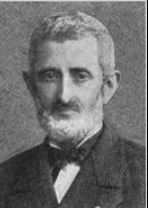
Rabbi Eliyahu Benamozegh
Wikimedia Commons, Public domain
In modern times, Noachide laws have taken off in different ways. The Lubavitcher Rebbe encouraged non-Jews to take on the Noachide laws and become part of creating a just society. In 1991 the United States Congress passed a resolution in honor of the Rebbe’s ninetieth birthday to affirm support for these laws:
“Whereas in tribute to this great spiritual leader, `the rebbe’, this, his ninetieth year will be seen as one of `education and giving’, the year in which we turn to education and charity to return the world to the moral and ethical values contained in the Seven Noahide Laws.” (Proclamation of Education Day)
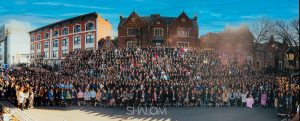
Chabad emissaries at their annual conference
shalom burkis, CC BY-SA 4.0 <https://creativecommons.org/licenses/by-sa/4.0>, via Wikimedia Commons
More recently, there has been a movement by evangelicals and other Christians to study the Noachide laws and to connect to Jews in Israel in the hope of bring the Messianic age closer. Jewish organizations also see value in teaching non-Jews these laws. A fascinating and colorful figure who became a prominent Noachide was the American archaeologist Vendyll Jones. He searched for artifacts of the past but also tried to create a new future in Israel through connections between Jews and Noachides. He was even involved in an attempted new Sanhedrin that would judge the world. Today this movement continues and has been involved in the search for red heifers that will be used to purify people in the Third Temple.

Black Angus Girl at English Wikipedia, Public domain, via Wikimedia Commons
When Noah and his family emerged from the ark, God showed them a rainbow as a promise that He would never destroy the world again. In order to fulfill that promise, He gave them laws to ensure that people would be worthy of this wonderful world.


